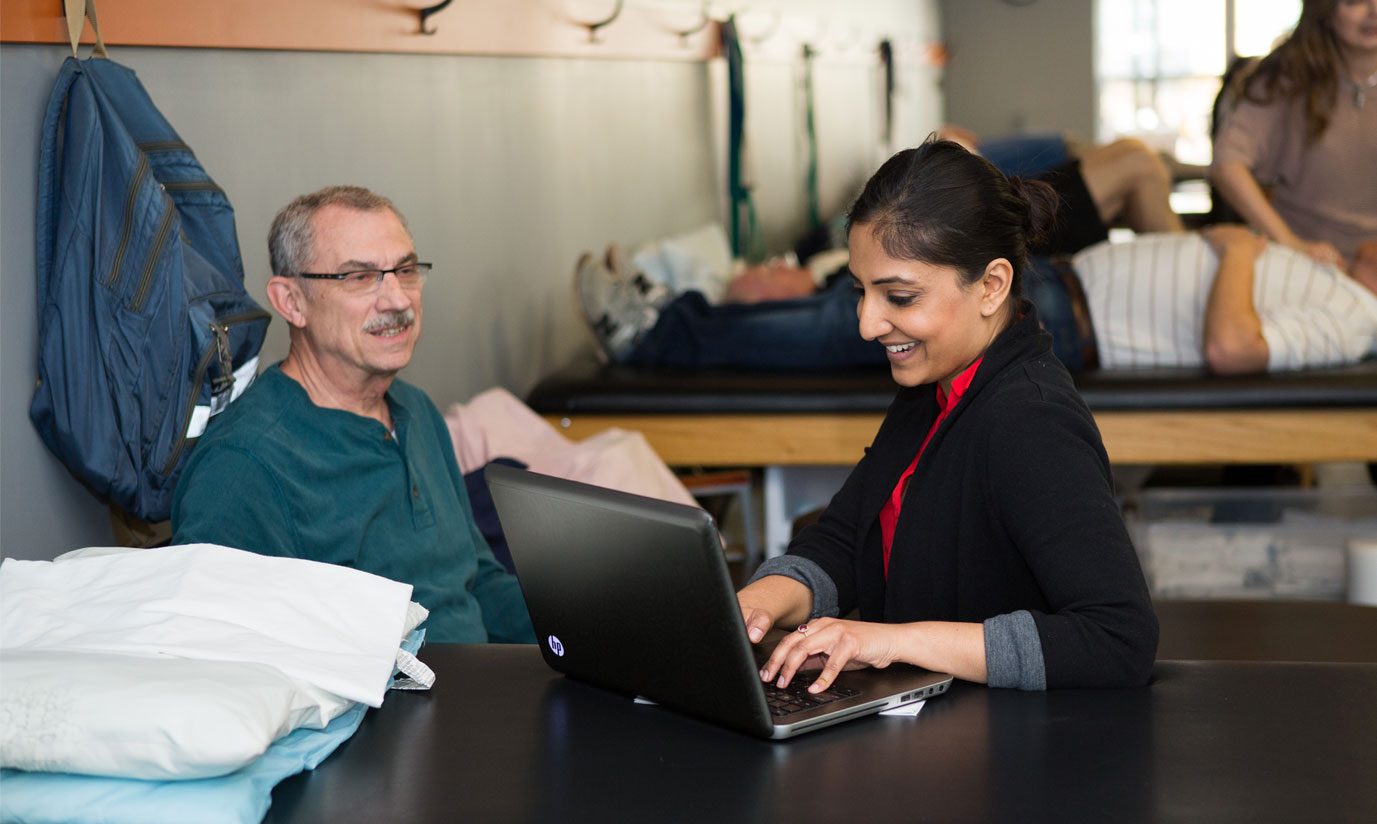
Centennial Lecture Series: Get Your Head in the Game: Basic Concussion Assessment and Management
- Registration Closed
The Centers for Disease Control and Prevention estimates that 1.6-3.8 million sports- and recreation-related concussions occur each year in the U.S. Proper evaluation and treatment may lead to a more complete and timely recovery. This course will introduce evaluation and management of post-concussion symptoms using clinical subtypes. Anxiety/Mood, Cognitive, Ocular-motor, Post-traumatic migraine, and Vestibular subtypes will be discussed, along with the modifiers of Cervical and Sleep.
Learning Objectives:
1. Identify common abnormal examination findings following concussion for the five clinical subtypes
2. Identify interventions post-concussion symptoms based on clinical subtype
3. Identify factors that contribute to prognosis and outcome following concussion
4. Describe considerations to facilitate recovery and inform safe return to play
Lt. Col. Carrie Hoppes
PT, PhD, Board Certified Clinical Specialist in Neurologic Physical Therapy and Orthopaedic Physical Therapy
LTC Carrie W. Hoppes is an Associate Professor and Director of the Army-Baylor University Doctoral Program in Physical Therapy. In addition, she provides clinical care as a guest provider at Brooke Army Medical Center’s outpatient physical therapy clinic, specializing in treatment of patients with vestibular dysfunction. She earned a DPT from the U.S. Army-Baylor University Doctoral Program in Physical Therapy in 2006 and her PhD from the University of Pittsburgh in 2017. Her dissertation work utilized functional near-infrared spectroscopy to study the cerebral activation of individuals with visual vertigo during optic flow. She received Board Certification in the area of Neurologic Physical Therapy from the American Physical Therapy Board of Clinical Specialties in 2013. She has served as the Chief of Inpatient Physical Therapy and Amputee Physical Therapy at major military medical centers during her 18 years in the Army. She is an instructor for the Military Vestibular Assessment and Rehabilitation course.
Karen Lambert
PT, DPT, Board-Certified Clinical Specialist in Neurologic Physical Therapy
Dr. Karen H. Lambert currently serves as the Vestibular Program Manager for the Hearing Center of Excellence for the Department of Defense and Veterans Administration. In addition, she provides clinical care at a private outpatient physical therapy clinic specializing in treatment of patients with neurologic dysfunction. She earned a Master of Physical Therapy from MCP Hahnemann University in 2000 and her Doctorate of Physical Therapy from Drexel University in 2014. She received Board Certification in the area of Neurologic Physical Therapy from the American Physical Therapy Board of Clinical Specialties in 2006 and recertification in 2016. She served as the Officer in Charge of the Traumatic Brain Injury Section of Physical Therapy at Walter Reed Army Medical Center from December 2007-August 2010. She is Course Director of the Military Vestibular Assessment and Rehabilitation course and teaches proper assessment and treatment of Service members with dizziness often related to concussion.
Course Instructions
- Click on the Contents tab to watch the course recording.
- Click the Take Quiz button to complete the assessment. Learners will have 3 attempts to pass and must answer at least 70% of questions correctly.
- Click Fill Out Survey under the Evaluation listing to provide valuable course feedback. Scroll down on all questions as there may be answer options that expand past the size of the window.
- Click the View/Print Your Certificate button under the Certificate listing. You can view/print your certificate at any time by visiting the APTA Learning Center and clicking the CEU Certificate/Transcript link on the left-hand side of the page.
Need Assistance?
For assistance logging in, accessing activities, claiming credit, or for other questions or concerns, please e-mail learningcenter@apta.org.


